Fordham Releases Statement on Sexual Misconduct From Clergy
Based on the findings of the “Taking Responsibility: Jesuit Educational Institutions Confront the Causes and Legacy of Clergy Sexual Abuse” project, Fordham University submitted a statement outlining an effort to better understand and prevent sexual misconduct from clergy members on Jan. 26, 2023. The statement included a message from President Tania Tetlow where she said she sympathizes with survivors of abuse and aims to defend those from “such cruelty.” “Too many are still determined to disbelieve reality—that child sexual abuse remains rampant in many institutions with trust over children,” wrote Tetlow.
Citing her years as an attorney, Tetlow wrote about the variety of issues within the court system that occasionally turns a blind eye to such pressing issues. As a lawyer, she wrote that she has even discovered a “…frequent overlap between domestic violence and child sexual abuse.”
“I [have] experienced the hostility of a legal system determined to disbelieve something so unpleasant. As I heard one family court judge announce, ‘litigants know not to bring claims like that into my court,’” stated Tetlow.
In a recent report by the National Catholic Reporter, C. Colt Anderson, a professor of Christian spirituality at Fordham, has stated that “there is an emphasis on being patient and merciful that allows for inferior performance and outright misbehavior… there is confusion between what is simply sinful and what is criminal.”
In 2018, a Jesuit priest by the name of Rev. Cornelius Carr, S.J., was accused of sexual misconduct at Jesuit High School in New Orleans. Despite his history, he was still granted permission to live in Murray-Weigel Hall, a Jesuit residence at Fordham University. However, until The Fordham Ram shed light on Carr’s history, the Fordham administration had stated that they had no knowledge of Carr’s previous history. Bob Howe, assistant vice president of communications at Fordham, released a statement in the article.
“That was a lapse on our part, and one that will not be repeated,” said Howe.“…While we don’t believe any members of the Fordham community have been placed at risk by Father Carr’s presence, it is inappropriate to house him in proximity to a college campus and high school.”
Richard Windmann, 53, a resident of Dallas, Texas, former student at Jesuit High School in New Orleans and survivor of sexual abuse involving Carr in the 1970s, stated that the church and university knew about Carr’s history, but chose to overlook it. “It’s all part of a cover-up by the Church. I’m sure the university knew about it,” said Windmann.
However, this was not the first time that a sexual offender resided on Fordham’s campus. During the 1960s, a Fordham Prep student issued a case against Rev. Roy Drake, S.J., a former science teacher who was also a resident of Murray-Weigel Hall.
Ten years later during the 1970s, Rev. Eugene O’Brien, a former principal and president of Fordham Prep, was also accused of sexual misconduct. In 1997, the accuser filed a lawsuit which was settled for $25,000. According to the Adam-Horowitz law firm, which specializes in representing victims of sexual abuse by clergy, “Father O’Brien admitted to allegations of child sexual abuse reported in 1993 beginning in the 1960s.”
Amongst the current Fordham student body, it remains popularly unknown that Fordham University has a history of dealing with faculty involved in sexual abuse.
“I did not know about any apparent history. But I believe that it’s our duty to acknowledge the sins and severe mishaps of our past while chartering our course into the future,” said Michael Duke, GSB ’26.
To combat sexual misconduct in the future, Fordham has launched the “Taking Responsibility: Jesuit Educational Institutions Confront the Causes and Legacy of Clergy Sexual Abuse” project. With this, researchers from 10 different Jesuit colleges and universities have received sub-grants to study aspects of clergy abuse.
Through this project, the university has made recommendations towards Jesuit institutions which include a “‘responsibility’ to survivors of clergy sexual abuse, especially when committed by Jesuits or by lay staff and faculty at Jesuit institutions.” Furthermore, the recommendations also state that Jesuit institutions should go “beyond” to accept more responsibility for abuse cases committed in the past. Lastly, the recommendations also state that Jesuit institutions should “…support and sponsor research on the abuse crisis to the fullest extent possible.”



































































































































































































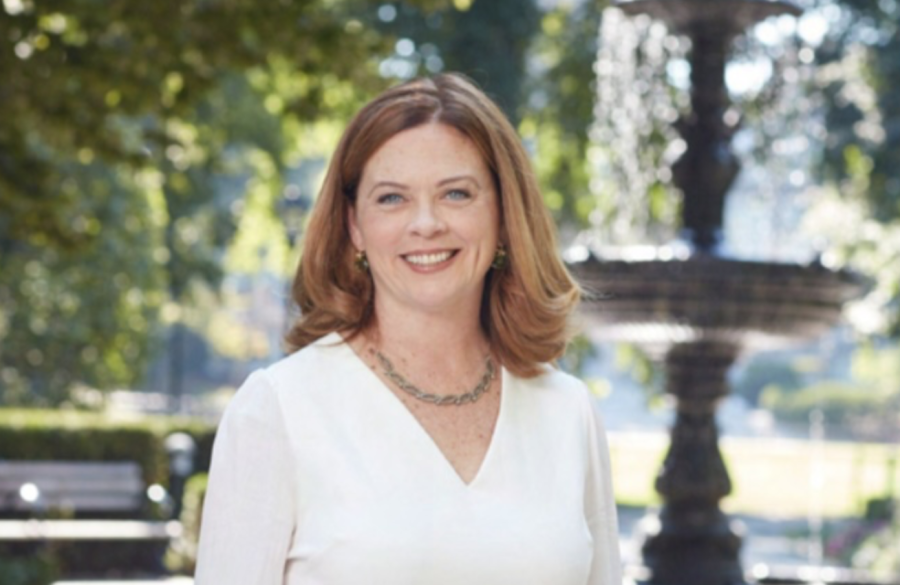
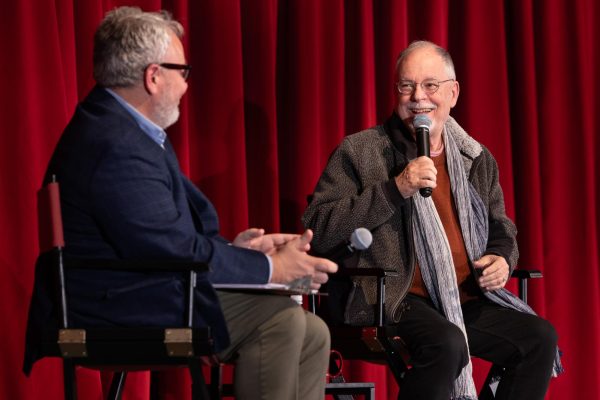
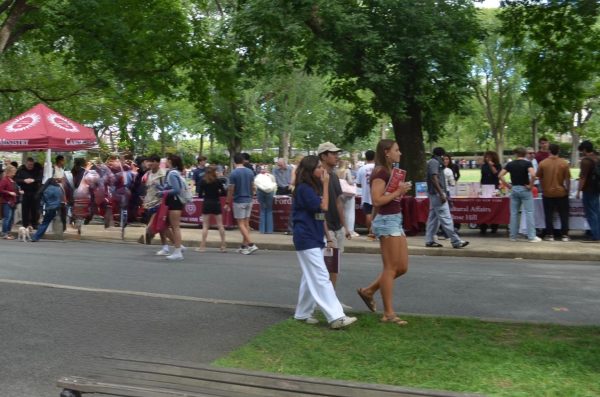
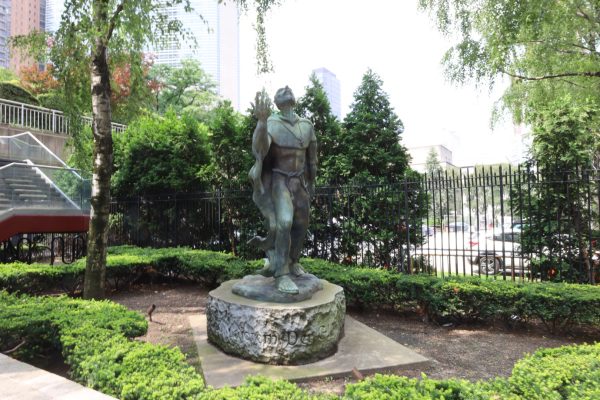
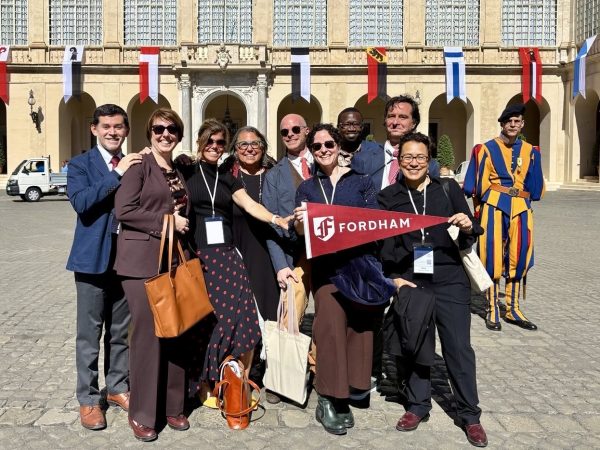
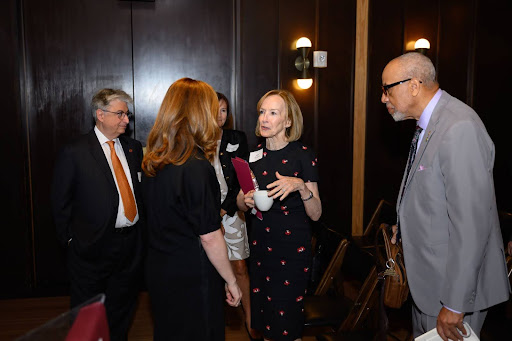
E.S. • Feb 13, 2023 at 3:08 pm
I wish at least this and much more would be done at all Jesuit universities– Loyola University New Orleans, and Boston College, and Georgetown University all have a history of protecting the perpetrators including the jesuits who have knowingly abused the students and failed to take action and proactive measures to hold accountability and protocols to have zero abuse of any kind on their campuses. Young adults college age are the largest group of emerging survivors in the Catholic realm because of how laws are set up– which in NY has shifted with the adult survivor act. Tetlow as President did not take swift action at Loyola New Orleans when awareness was brought to her attention on Ted Dziaks S.J. Abuse of college and post college young adults, that has a long trail of documentation over three US Jesuit colleges and other locations, which was disheartening to put it mildly. Perhaps she is learning from her past mistakes. I hope so.